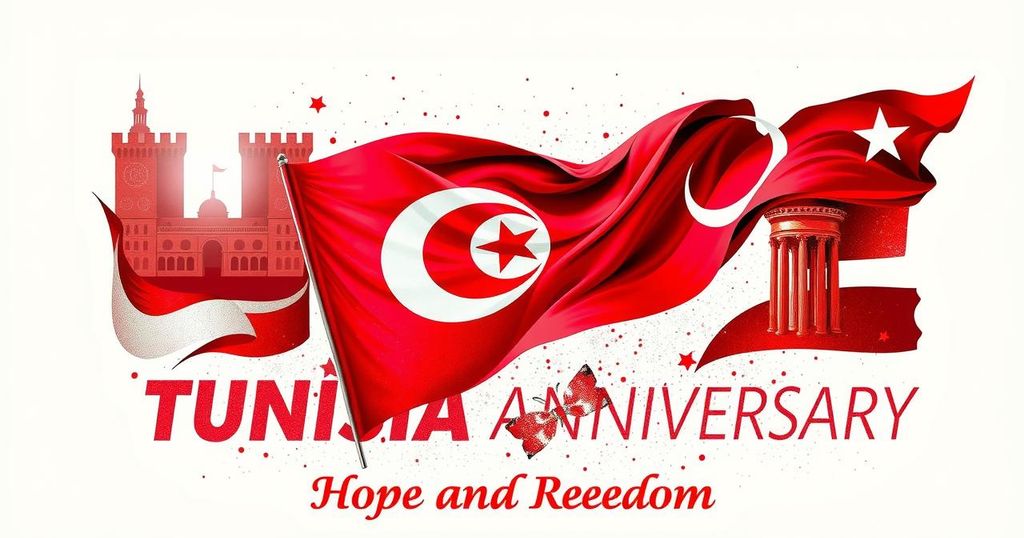This article reflects on the anniversary of Tunisia’s revolution amid a climate of oppression under President Kais Saied, contrasting it with a recent victory in Syria. It underscores the importance of perseverance in the struggle for freedom, suggesting that revolutions, despite setbacks, are fundamentally resilient and inspire renewed hope across the region.
As Tunisia marks the anniversary of its revolution, the atmosphere is not one of celebration but rather one of mourning and uncertainty. Under the authoritarian regime of President Kais Saied, who once championed the revolution, public gatherings are restricted, and the significance of January 14 has been diminished to an ordinary workday. However, this year carries renewed hope as the Syrian people have recently succeeded in toppling the long-standing regime of Bashar al-Assad, igniting aspirations across the region once more. This achievement, following years of struggle, underscores that the quest for freedom and dignity can eventually prevail despite harsh resistance, including bombings and political backlash.
The recent change in Syria serves as a powerful reminder that though revolutions face setbacks, they cannot be eliminated entirely. Tunisia, which previously sparked a wave of uprisings across the Arab world, now faces oppression and political stagnation. Yet, the triumphs of the Syrian people inspire Tunisians and reinforce the belief that the fight for freedom continues. The journey towards a stable and just political system is often arduous and lengthy, influenced by both progressive and regressive forces.
As Tunisians prepare to demonstrate in commemoration of their transformation, many opposition figures remain imprisoned or charged under a compromised judiciary, advocating for democracy against a backdrop of authoritarianism. The resilience shown by these individuals illustrates the enduring spirit of the Arab Spring and emphasizes the long and often painful journey toward justice and democracy. In this context, Syria’s victory echoes a promise that the sacrifices made by those fighting for societal justice will not be forgotten and that one day, similar scenes of freedom may be witnessed across Tunisia and the broader region.
The article discusses the anniversary of the Tunisian Revolution, highlighting the shift from a moment of celebration following the fall of dictator Zine El Abidine Ben Ali in 2011 to a time of oppression under the leadership of President Kais Saied. The piece contrasts the current situation in Tunisia with the recent victory of the Syrian people in ousting Bashar al-Assad, suggesting that despite setbacks, the spirit of revolution and the desire for freedom remain alive in the Arab world.
In conclusion, the anniversary of Tunisia’s revolution reveals a complex landscape of hope interwoven with despair. While the Tunisian populace currently endures repression, the successful revolution in Syria serves as an uplifting precedent, encouraging perseverance in the struggle for justice and freedom throughout the Arab region. Historical patterns indicate that revolutions are not defeated; instead, they may return stronger after periods of struggle, reaffirming the unwavering spirit of those yearning for democracy.
Original Source: www.middleeasteye.net






